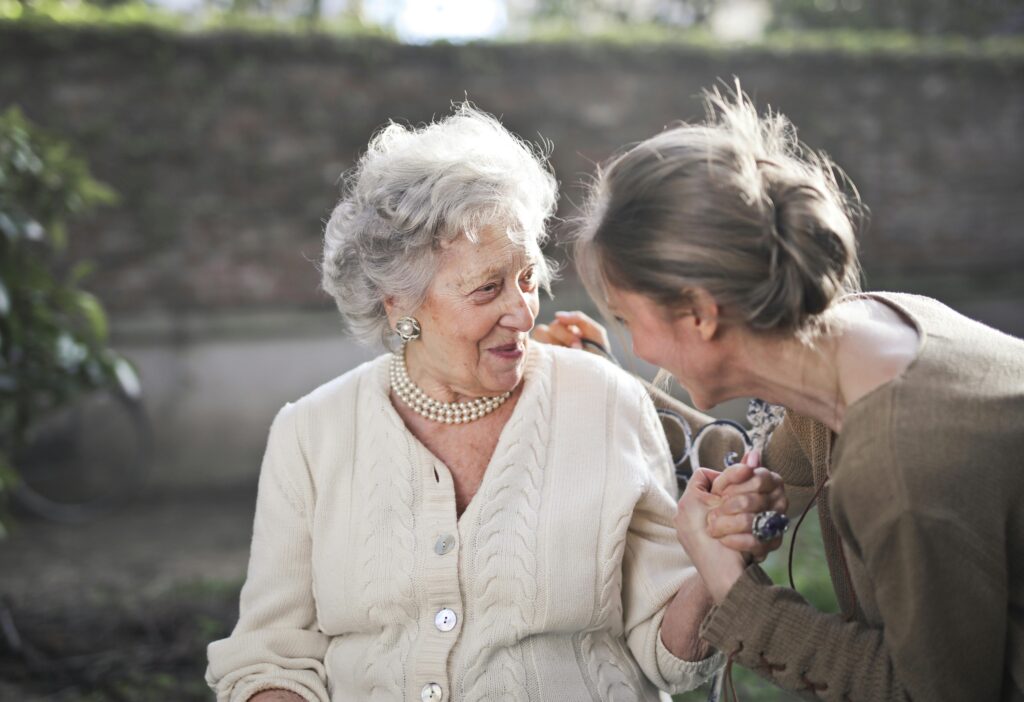
Caring For a Loved One with Dementia
Caring for aging loved ones can be difficult no matter the circumstances. Caring for those with Alzheimer’s, Dementia, or Memory Loss can be especially hard to navigate emotionally, logistically, and physically. This week, we are sharing some signs that it may be time to seek outside assistance for your loved one. BAHS offers memory care and eldercare services, ranging from companions to Home Health Aids (HHA), Certified Nursing Assistants (CNA), and Registered Nurses (RN). Our team of experienced recruiters can help you decide what type of help is best for your loved one.
What Are Some Signs That It May Be Time To Seek Outside Assistance?
Difficulties with Daily Activities
If your loved one is experiencing trouble with basic tasks, such as dressing, bathing, and eating, it may be time to bring in assistance. The goal is always to give the person struggling the most independence possible, while making sure they are safe. If they need regular assistance with these activities, it is often too much for loved ones to manage, and bringing in a skilled professional can help caregivers better manage their time and keep loved ones safe.
Safety Concerns
Sometimes people struggling with Alzheimer’s, Dementia, or Memory Loss can cause accidental harm to themselves or others. Common issues include leaving the stove on, falling, failing to lock/close doors and windows, leaving their home unaccompanied and getting lost, and failure to take medications or eat at regular intervals. If you see signs of any of these risks, it is critical to get your loved one help as soon as possible. Often a live-in caretaker can help put your mind at ease, while maintaining your loved one’s quality of life.
Changes in Behavior
If you see a serious change in behavior in an aging or ill loved one, it is likely time to see a doctor and consider outside assistance. Signs might include agitation, confusion, social withdrawal, trouble with language, or inability to concentrate.
Caregiver Burnout
Caring for a loved one is more than a full-time job, often making it incredibly difficult to balance with other aspects of life. Asking for help doesn’t mean you don’t care or aren’t capable—it simply ensures you can provide the best support possible. In many cases, bringing in outside assistance can strengthen your relationship with your loved one by giving you the time to rest, recharge, and be fully present. Instead of focusing solely on demanding physical tasks, you can enjoy meaningful conversations and shared activities that bring you both joy. Professionals skilled in memory care will be able to provide guidance and ensure your loved one receives all the support and resources possible during this challenging time.

General Tips for Those Caring for Loved Ones with Memory Loss
Consistency is Key
As much as possible, try to keep those struggling with memory loss on a regular schedule. This includes morning routines and bedtimes, mealtimes, and medications. Be sure to communicate the schedule with all caregivers to be sure it remains consistent each day. It might be helpful to put written reminders around the home – a calendar in the kitchen, a sign with the day of the week, etc.
Adjust the Home
As loved ones age, it is helpful to adjust the home to meet their needs. Small changes like shower chairs, swapping out unstable furniture for safer models, and adding safety rails can allow the person a little bit of extra independence. You might add extra photos of loved ones around the house, as well as written reminders – a medication schedule in the bathroom, a calendar (with days clearly marked off) in the kitchen etc.
Don’t Forget Independence and Joy
It can be easy to get bogged down in the minutiae of everyday and just focus on making sure your loved one eats and is clean etc. Even when struggling with memory loss, the person you know and love is still there – make it a point to include activities they used to love as much as possible. Read to them, watch old movies, play music, and recount memories. All of these things can help raise their spirits and strengthen your bond. As much as is safely possible, encourage independence. Sometimes swaps like switching from button pants to elastic pants can make it easier for loved ones to dress themselves, and maintain more of their independence.
Be Gentle and Respectful
As hard as it is on the family, aging is just as challenging for the person experiencing it. Don’t forget to be kind and patient, with your loved one and with yourself. If you find yourself rushing or losing energy, it might be time to take a break and ask for help. And remember to always speak to and about the person as though they can hear and process the words you are saying, even if they seem to be asleep or unable to understand. Often people understand more of what is going on around them than is readily obvious to outsiders.
Take Care of Yourself
Caregiver burnout is extremely common, making self-care essential for both you and your loved one. Prioritizing rest, proper nutrition, and personal time allows you to provide better care. Don’t hesitate to ask for help when you need it; there are various levels of care available from temporary and part-time assistance to overnight care. Seeking help doesn’t diminish your role as a caregiver; it strengthens it, ensuring you can continue to be present and engaged.
Learn more about our eldercare services here.
